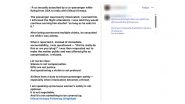Belfast, Oct 20 (AFP) In the staunchly pro-British Shankill area of Belfast, Northern Irish unionists worry that the new Brexit deal threatens to loosen ties with mainland Britain that are the cornerstone of their identity.
In this stronghold of unionism, UK flags flutter over the streets and murals commemorate loyalist paramilitaries who died for the cause.
The site of gun battles and bombings, the west Belfast neighbourhood has spilt blood to preserve its links with the mainland.
Northern Ireland's Democratic Unionist Party (DUP) supports Brexit and British Prime Minister Boris Johnson's government -- but bitterly opposes his EU divorce deal.
Johnson's plans would see the province stay aligned with the European Union in areas such as food standards and sales tax rules -- to smooth the flow of goods across the currently invisible border with EU member the Republic of Ireland.
The DUP fears they would effectively create a new border with mainland Britain down the Irish Sea, and lock Northern Ireland in closer with the Republic -- everything unionism stands against.
DUP Brexit spokesman Sammy Wilson said the deal would do "a great deal of damage to the union".
He said Sunday: "We want to leave as one nation. That remains our goal."
Along the Shankill Road, peppered with giant murals to loyalist gunmen, Queen Elizabeth II and even a fading ode to the union, some are similarly concerned.
"I find it difficult to understand why they want to put a border in the sea," Lucy Murray -- a lifelong resident of the Protestant and pro-union stronghold told AFP.
"I don't agree with that. I think we should still be part of Great Britain," the 77-year-old added.
"We hope that we don't have to fight for this."
BBC Northern Ireland has reported that regular unionists and the more hardcore loyalist fringe have discussed Johnson's deal and that civil disobedience on a "large scale" has been debated.
Others are less concerned about the change in trading arrangements -- their unionism is forged in history and emotion.
"How's it going to affect us?", unionist Elaine Malley asked.
"It's just MPs scaremongering people.
"We're still British -- no matter what happens, we're British," the 48 year-old mother said.
"I was born British and I'll die British." Northern Ireland's 1998 Good Friday peace accords largely ended the 30 years of sectarian bloodshed known as the "Troubles".
The agreement included making the border on the island of Ireland invisible. Johnson's deal would preserve that, but Malley would prefer to see a physical border emerge to the south.
She dismissed notions that "the bad old days" could make a comeback.
Unionists fear that weakening links to Britain are a step in the road towards bringing the province into the Irish Republic.
"They'd see that as a threat to unionism because maybe down the line it'll separate Northern Ireland from the rest of the UK," explained Iain Whiteside.
The 48 year-old gift shop owner's premises are stacked with Union Jack mugs and trinkets commemorating Britain's role in World War I.
Doing business in the Republic, the Brexit-voting unionist would prefer to see a trade border in the Irish Sea between Northern Ireland and mainland Britain.
He seemed resigned that Brexit would end up turning into the latest development in a siege on unionism he believes has been under way for a decade.
"There will be a vote for a united Ireland," he said.
"The majority of the people in Northern Ireland will soon be Roman Catholic, that's just the way the country's going."
Whilst unionism is historically the domain of Protestants, Catholics have generally favoured integration into the Republic of Ireland.
Whiteside's concerns are borne out by recent research.
"There is a measurable trend towards a Catholic majority within Northern Ireland," wrote Ulster University academic Duncan Morrow in a report in May.
The direct link between religious and constitutional beliefs is no longer a given, as communities have emerged from their entrenchment since the end of the Troubles.
But even Irish Prime Minister Leo Varadkar, who has no professed ambitions to merge Northern Ireland with the Republic, has said a disruptive hard Brexit could spur Irish unity.
"Moderate nationalists or moderate Catholics who were more or less happy with the status quo will look more towards a united Ireland," Varadkar said in July.
"And increasingly you see liberal Protestants, liberal unionists starting to ask the questions as to where they feel more at home." (AFP)
(The above story is verified and authored by Press Trust of India (PTI) staff. PTI, India’s premier news agency, employs more than 400 journalists and 500 stringers to cover almost every district and small town in India.. The views appearing in the above post do not reflect the opinions of LatestLY)













 Quickly
Quickly


